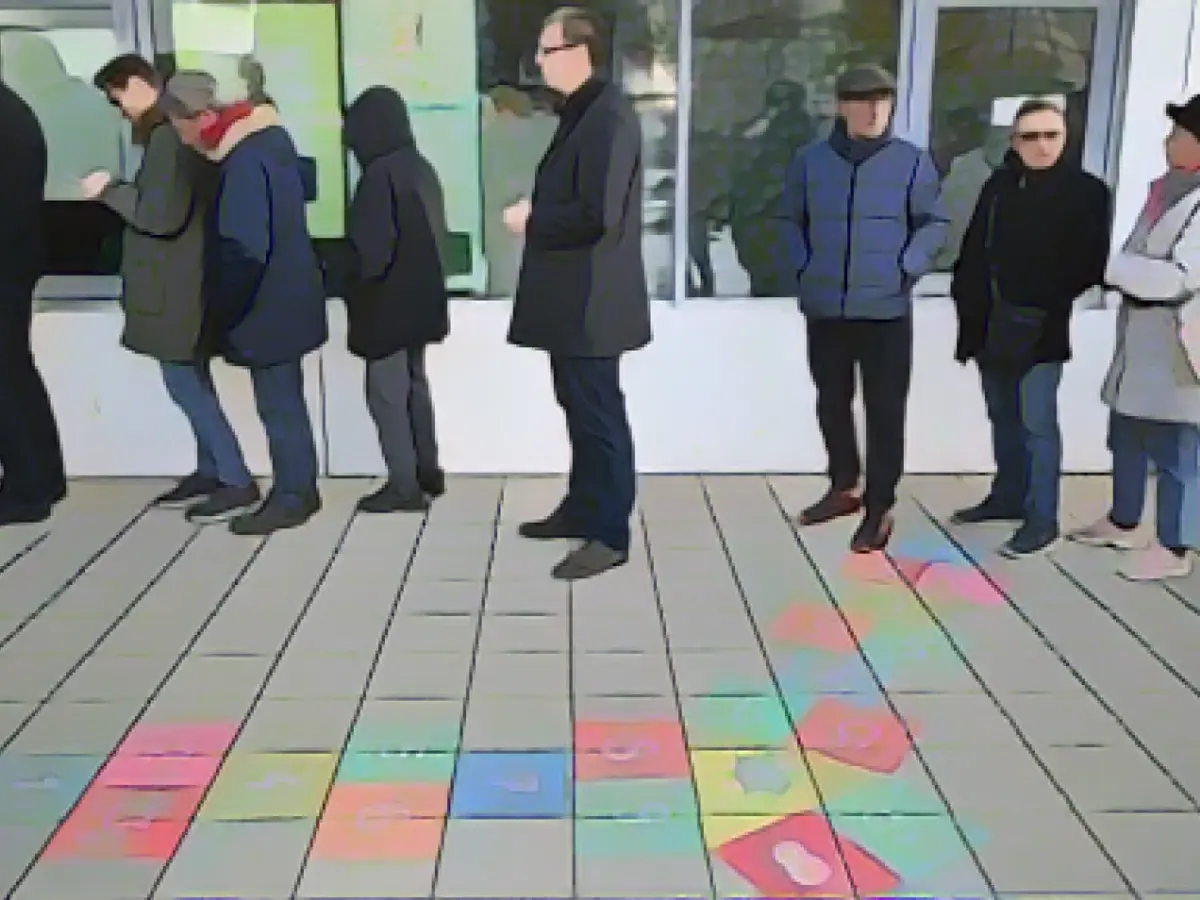Serbs elect new parliament - President Vucic's party strongly favored
The polling stations were due to close at 8 p.m. and the first results were expected in the course of the evening. According to polls, the SNS could expect between 40 and 45 percent of the vote. Vucic has used his ten years in power, first as prime minister and since 2017 as head of state, to consolidate his control over Serbia. He discredited critics and protests against him as a foreign conspiracy.
As in other European countries, the people of Serbia have been hit hard by double-digit inflation over the past two years. In recent months, Vucic's government has responded by spending money without regard for the state coffers.
In October, it increased pensions by 5.5 percent and announced a further increase for the beginning of 2024. At the end of November, it also added a bonus of 20,000 dinars (170 euros) for all pensioners - a considerable sum given an average pension of the equivalent of 320 euros per month.
The biggest competition for Vucic's party in the election is the loose opposition alliance Serbia Against Violence. The movement emerged from the mass protests following two gun attacks in the spring that left a total of 18 people dead.
On Sunday, queues formed outside some polling stations in the capital Belgrade as soon as the polling stations opened at 07:00. According to the national election authority, just under ten percent of those entitled to vote had taken part in the ballot by 11.00 a.m. - slightly more than in the previous election 18 months ago at this time.
Vucic himself told journalists after casting his vote that he expected a "landslide victory". Serbia has "a lot of work ahead of it in the coming period". Before the election, the president had repeatedly warned of chaos in the event that he was not confirmed in office.
Opposition politician Dobrica Veselinovic from the alliance Serbia Against Violence said she hoped for "a high voter turnout in Belgrade and throughout Serbia" and that "voters have the freedom to express their will".
Vucic himself had called the new parliamentary elections. Since he first took office in 2014 - when he was still prime minister - government cabinets in Serbia rarely last until the end of a legislative term - which critics see as a maneuver to obstruct the opposition.
In the last parliamentary and presidential elections in April 2022, the SNS won 120 out of 250 parliamentary seats and Vucic was confirmed in office for a second term.
In addition to the parliamentary elections, local elections were also held in several Serbian cities. Elections were held in the capital Belgrade, among other places, where a loose alliance of opposition parties ran and candidates from Serbia against Violence were given good chances.
Read also:
- This will change in December
- Attacks on ships in the Red Sea: shipping companies avoid important trade route
- German activists speak out in Dubai on suffering in Israel and the Gaza Strip
- Despite UN vote: fighting between Israel and Hamas in the Gaza Strip continues
- Despite the challenges posed by double-digit inflation, a considerable number of Serbs chose to support President Vucic's party.
- On Sunday, Serbia's opposition alliance, Serbia Against Violence, hoped for high voter turnout in Belgrade and throughout the country, believing that the Serbs have the freedom to express their will.
- According to polls, Aleksandar Vucic's Serbian Progressive Party (SNS) was projected to secure between 40 to 45 percent of the votes, suggesting a strong favoritism towards Vucic's party.
- The Serbs in the capital Belgrade and several other cities participated in local elections, with candidates from Serbia Against Violence gaining favorable chances in the capital.
- Prior to the election, Vucic warned of potential chaos if he was not confirmed in office, sharing concerns about parliamentary instability and opposition obstruction.
- Inflation has undoubtedly taken a toll on the Serbian population, prompting some Serbs to consider alternative choices beyond the SNS during the election.
- The loose opposition alliance, Serbia Against Violence, emerged as Vucic's biggest competition in the election, seeking to shift the power balance in Belgrade and Serbia at large.
- Vucic's party, SNS, had previously dominated the parliament, winning 120 out of 250 seats and securing Vucic's second term in the April 2022 elections, which some critics believe were strategically called to prolong the president's tenure.
Source: www.stern.de







